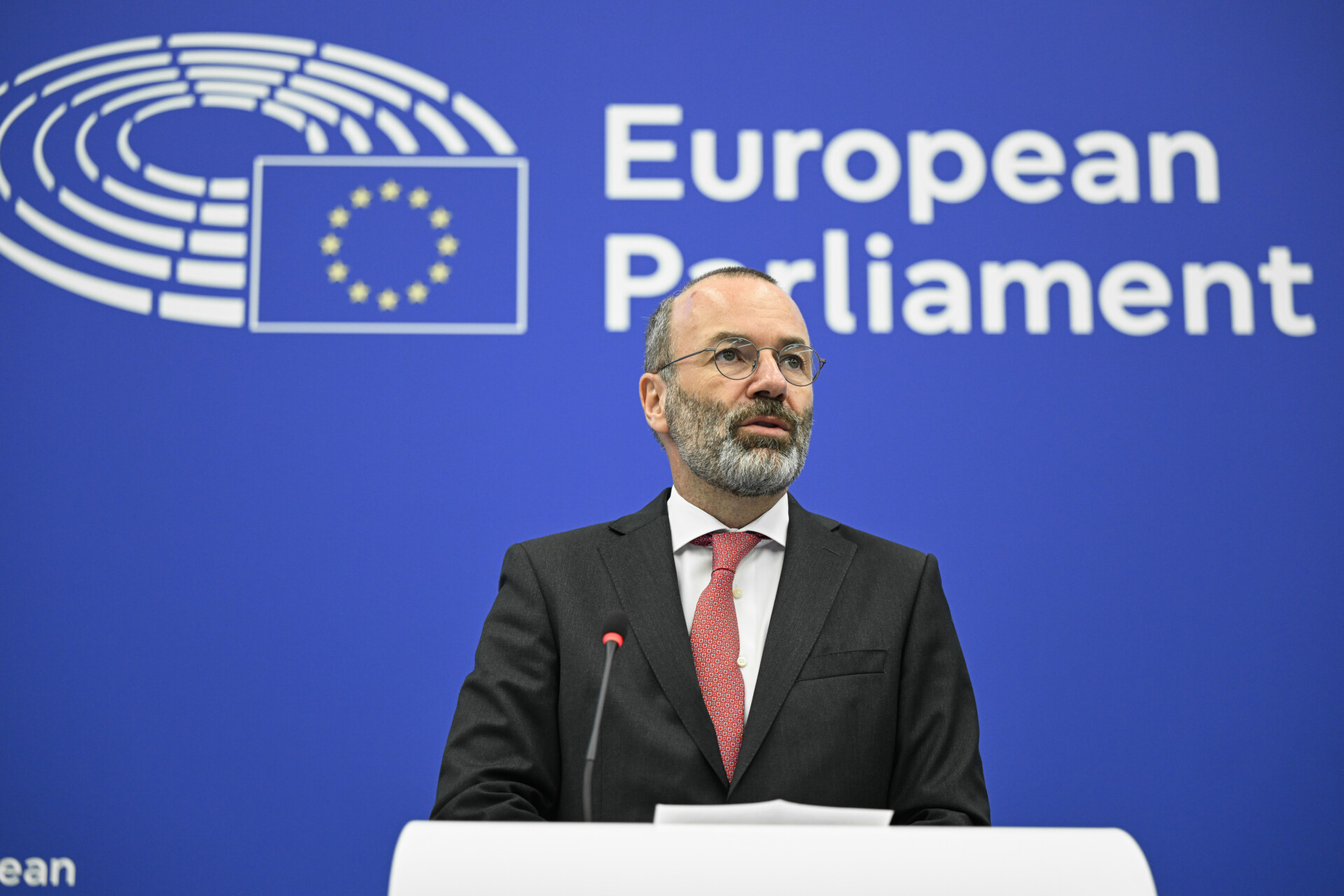- Για έγκυρη και έγκαιρη ενημέρωση
- info@green-news.gr

Enaon (Italgas Group): Investments of 1 billion euros by 2030 to support Greece’s green transition
5 December 2024
Λ. Μενδώνη στο Athens Talks: Επενδύοντας στον Πολιτισμό, εξασφαλίζουμε ένα βιώσιμο μέλλον: 19+1 νέα έργα στην Αττική
5 December 2024The EU’s unquestionable and clear support for Ukraine was underlined by the president of the European People’s Party, Manfred Weber, in an interview with Naftemporiki.
More specifically, he said “that this is not a war between two nations, but between two systems: our democratic Europe based on the rule of law and the autocratic system defended by Putin and his allies.”
“The closer the war comes, the more determined we must be. This is why support for Ukraine is fundamental,” he underlined.
The full interview to Eliza Karagiorgi follows:
Mr President, the new College of Commissioners was approved by the Parliament. What are the expectations of working with the new Commission?
We are proud, as the EPP, of this team, which is balanced and unites Europe. With 14 Commissioners from our ranks, it will be able to represent the diversity of the territories and respond to the urgent needs of our time. In my view, there are three priorities.
First, the immediate need to develop the continent’s competitiveness, ensure its prosperity and guarantee access to decent incomes. Concerns about rising prices, the cost of living and the economic situation are at the heart of our concerns, and the Commission must respond to them.
Secondly, we must give ourselves the means to ensure the security and defense of our continent. The new Commission must be the one that finally fulfills Acilde de Gasperi’s wish to see a European Defence Union come to life, through the action of countries working together, preparing together and supporting each other.
Finally, to put an end to illegal immigration by genuinely protecting the EU’s external borders. Smugglers must be mercilessly hunted down, in particular by strengthening the resources of Frontex and rapidly implementing the Pact on Migration and Asylum. Working towards a Mediterranean pact with third countries must also be a priority, as must funding physical border infrastructures from the EU budget.
At the moment there is an escalation of the war in Ukraine. The newly elected US President Donald Trump has suggested that aid will cut or reduce the aid. Has the EU considered how the support to Ukraine will continue?
There’s no doubt about it, we are and will continue to stand by the Ukrainians and support it
until its victory. Just last week, we voted for a text in the European Parliament reiterating our unwavering support. The EU will not reduce its aid. This is not a war between two nations, but between two systems: our democratic Europe based on the rule of law and the autocratic system defended by Putin and his allies.
Let me be clear: the closer the war comes, the more determined we must be. This is why support for Ukraine is fundamental.
One of the main goals of the EU is competitiveness. How can we cope with the US and China, especially if President Trump imposes tariffs?
The first, crucial challenge is to give companies in Europe some breathing room. Today, rather than innovating, an entrepreneur wastes considerable energy managing regulations and seeking subsidies to comply with them. This is unsustainable. We can set goals, but we must let the industry, the engineers, and the researchers decide on the means to achieve them. It is essential to harmonize and simplify the rules.
The next Commission will also need to make real progress towards establishing a genuine single market, both for the movement of goods and capital.
Furthermore, if I take the example of the car industry, we must objectively examine what isn’t working. For example, the transition to electric mobility envisioned in the Fit for 55 plan goes in the right direction. But the goal of ending the sale of combustion-engine cars by 2035 seems, more than ever, completely unrealistic. It’s high time to reconsider this.
Lastly, let’s use common sense and learn from past failures. The Green Deal is about creating jobs in Europe, not China. In the first half of 2024, Chinese brands represented over 10% of new electric vehicle sales in the EU, a striking increase from nearly zero in 2019. China controls essential raw materials for batteries, while Europe’s battery production lags. We didn’t reduce our dependence on Russian gas only to become reliant on Chinese batteries.
We need to develop a new resource strategy before it’s too late. We can’t afford to lose another solar panel war to China…
How do you see the situation of the Greek economy in relation to challenges the EU is facing?
The Greek economy endured a decade-long recession following the global financial crisis of 2007-2008. Under the leadership of Kyriakos Mitsotakis, who had the courage to take the right economic decisions, Greece regained its footing and embarked on a path of recovery and the results are clear, according to the Commission’s latest macroeconomic forecast.
Greece’s economy is projected to grow by 2.1% in 2024, with similar growth expected in 2025 and 2026. Unemployment continues to decline, and the general government deficit is shrinking, driven by restrained expenditure growth. However, while economic recovery is firmly underway, Greece now has to ensure sustainability and resilience of its economy. We need good jobs with decent incomes. Greece has turned to be the role model for Europe. Thanks to the great leadership by Kyriakos Mitsotakis.



